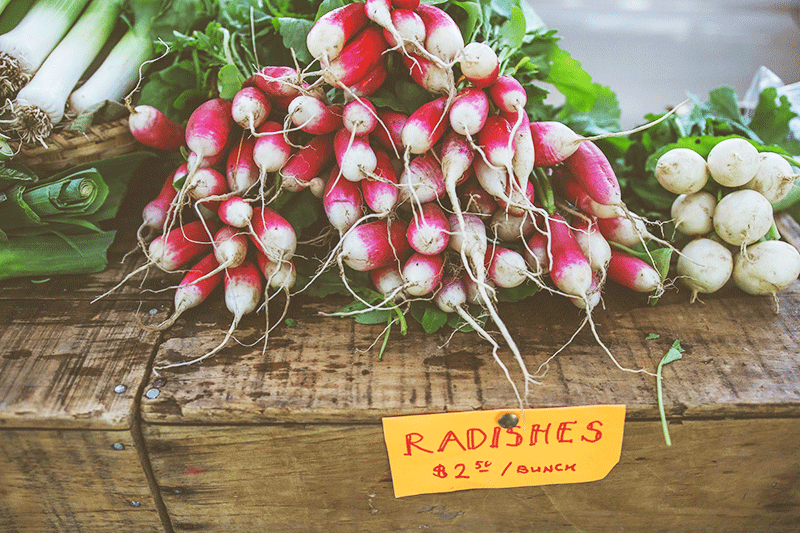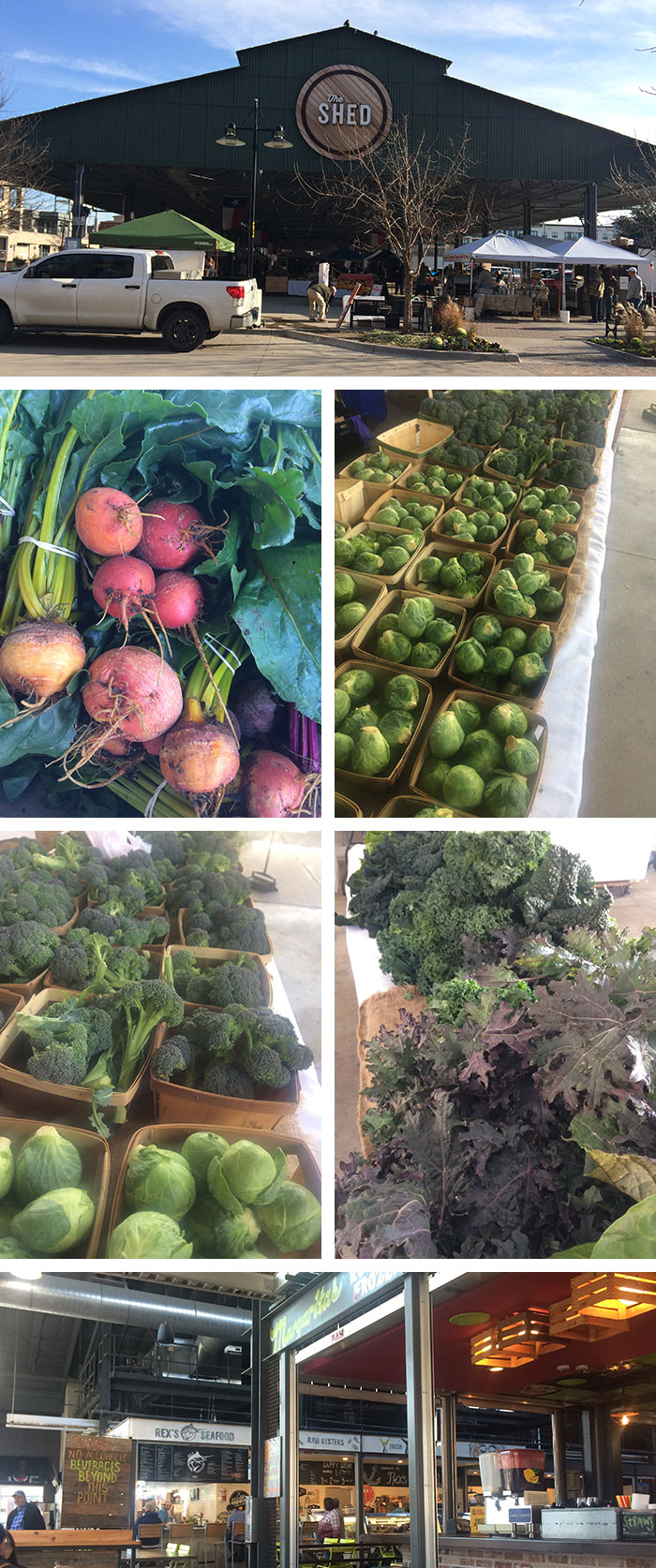
This week a client peppered me with questions about farmers markets; questions like how to find a good one, how to pick through the bins, how to haggle, how to best manage shopping logistics, and more. Here are a few of the tips I shared on finding a great market…
The Produce is Sorta Funky, with Irregular Shapes and Sizes
Real small farms produce “real” produce; in fact, those accustomed to shopping the in the world of mass produced foods where all the cucumbers and carrots look exactly the same might not even realize massive farms yield produce that’s picked (and often otherwise manipulated) to look exactly the same every time (uniform size, shape, ripening window, etc.).
Shop the markets that have vendors selling irregular – even ugly – produce, think curvy cucumbers and forked, stubby carrots for example. Vegetables picked at the peak of freshness don’t all look the same.
The vendor selling perfectly symmetrical, same-sized veg may have actually bought a load at wholesale from another vendor, maybe not even locally, and be passing it off as small farm treasure.
The Produce is in Season and Fits Your Locale
Just for example, we live in North Texas, in a region that has definite seasons; it’s pretty easy to follow what should be coming in from local farms, give or take a few weeks pending the specific weather.
A local vendor was trying to pass off avocados as being a local crop at a market nearby the other day – ain’t no way avocados are being harvested in North Texas in August. The boxes stacked behind the stand we’re even labelled as being from Mexico, yet she stuck to her story and even sold a few as I quizzed her. (She asked us to move along…).
The Vendor is Happy to Talk About Their Farm
We’ve yet to meet a genuine small farm producer who doesn’t love to talk about their farm, their farming practices, their favorite crops, what work they’re doing now, and how the weather’s been.
Any time a vendor doesn’t want to answer questions about their produce or operation in detail, move on down the aisle. Local producers want to teach you, and hear how much you enjoyed their food; everyone is allowed a bad down now and then, but the vendor who doesn’t want to talk about their produce is waving a warning flag…
The Produce Might Just Seem a Bit Pricy Compared to Your Favorite Grocer
My friend Chef Libby scolded me one day in Austin after I haggled with a vendor over something in her stand (I can’t even recall what it was); I’ve tended to be a be a value shopper over the years, and I thought the farm stand pricing was too high.
Libby’s two points have stuck in my head since: one, it’s damned hard to make a living as a small farmer, and most are simply neither able nor inclined to sell the fruits of their hard-earned labor at the cheapest possible price. And two, you’re going to pay a premium, albeit a small one hopefully, for the very best, freshest ingredients, often grown with extraordinary care. The overwhelming majority of the time – it’s worth every penny.
If you run across a bin of goods at the market that appears oddly inexpensive, take note; you may be looking at a reseller or otherwise sub-optimal goods.
The Bins are Full of Fresh Produce and Meats, and Not Much Else
The best farmers markets sell fresh produce and meats – that’s was what drove their creation and very existence in the first place. Beware markets packed with prepared food vendors, arts and crafts, and stall after stall of unrelated goods.
Don’t get me wrong, they all can be damned interesting, but when you’re after the very best, and freshest, foods to put on your table, you want the market’s objective to be the same as yours – to present to you and your family the best options your local farms have on hand that very day (or weekend) in a format that makes shopping fun and interesting. And a little friendly competition is good for everybody in the game, and your budget as well.
Healthy and fun farmers market shopping this week.






















